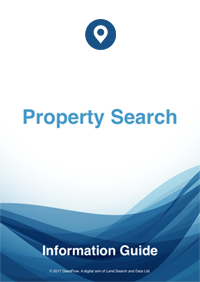Freehold and Leasehold Properties
Article Summary
All legal estates in England and Wales have one of three possible tenures. A legal estate really means, in a simplified form, that you own the property. A property's tenure relates to the type of ownership you own. The three tenures are:
- Freehold
- Leasehold
- Copyhold
There are so few copyhold tenures around, that discussing it in this article would be confusing and unnecessary. So to all intents and purposes there are really only 2 tenures, i.e. freehold and leasehold.
The Title Register for all properties will state, in the A section, what the tenure is, as shown in the sample Title Register extracts below.
Freehold Tenure
A: PROPERTY REGISTER
This register describes the land and estate comprised in the title
MERSEYSIDE : LIVERPOOL
1 (03.01.2003) The Freehold land shown edged with red on the plan of the above Title filed at the Registry and being 67 Stepney Street, Wavertree, Liverpool (L13 67N).
Leasehold Tenure
The leasehold land demised by the lease referred to below which lies within the area shown edged red on the plan of the above title filed at Land Registry and being Flat 4, Smith Street, Anytown (*DA1 4XX).
NOTE: The flat is on the first floor.
Short particulars of the lease under which the land is held:
Date : 26 April 1982
Term : 99 years from 24 June 1981
Rent : £50 per annum
Parties : (1) Elizabeth Harker
(2) Deidre Passiform
What the Tenure means so far as Ownership is concerned
Freehold
Ownership of the freehold means that you own the legal estate in the property absolutely and permanently and that you can dispose of it as you wish. Not everyone realises that when you own the freehold you own the property and the land it is built upon. You are shown in the B section of the Title Register as the Registered Proprietor (the owner of the property), as in the following Title Register extract:
1 (15.11.1993) PROPRIETOR: NEVILLE CHURTE of Tavistock Road, Litchfield WS7 3XL.
2 (15.11.1993) The price stated to have been paid on 10 October 1993 was £475,000.
Leasehold
Ownership of the leasehold means that you own a term of years of the legal estate, i.e. the freeholder granted a lease to you or one of your predecessors in title, and that the lease will at some point come to an end, unless it is extended. A leasehold estate is known as a Term of Years. Common terms for the ownership of a leasehold estate are 75 years, 99 years, 125 years and 999 years. There are, of course, much smaller leases but these are not regarded as ownerships as they are for substantially smaller periods, have large payments of rent and no purchase price. Most rental properties are not registered with their own Titles.
Ownership of the leasehold requires the payment to the freeholder of an annual rent. This is usually quite low, e.g. £75 per annum, and sometimes is no more than a "peppercorn" which is really a legal fiction to satisfy the law of contract, meaning that rent is not required.
Leasehold estates, most of the time, relate to the ownership of flats, but not always. It is important to know whether you own the freehold or leasehold as leasehold estates require the payment of rent, sometimes a service charge, contributions towards the upkeep of the exterior of the property or other shared areas, and because the lease might be drawing towards the end.
Lease
All Leaseholds have a registered Lease as well as a Leasehold Title Register and Title Plan. The Lease is usually a long document and almost always has a Lease Plan attached to it. These documents are very useful in resolving disputes with other flat owners, particularly with regard to the shared areas, car parking, etc. When you sell the property your solicitor will always require a copy of your Lease and well as your Title Register and Title Plan, as the purchaser's solicitor will want to see them.
Lease Extension
As the length of a lease shortens the value of the property decreases. However, in 1993 the government passed the Leasehold Reform Housing & Urban Development Act, which introduced the right of a leaseholder to apply for the extension of the term of his lease for an additional period of 90 years. This right applies where he has owned the property for at least 2 years and where the lease is a long lease, i.e. originally granted for a period of more than 21 years.
Title Register
The Land Registry Title Register holds data relating to the property ownership, purchase price, mortgage, tenure, covenants, rights of way, leases and class of title.
£19.95Title Plan
The Title Plan shows an outline of the property and its immediate neighbourhood, and uses colours to identify rights of way, general boundaries and land affected by covenants.
£19.95Associated Documents
Deeds creating Restrictions, Covenants, Easements, etc. are often kept digitally by the Land Registry and made available for sale due to their invaluable detail and content to assist in further understanding the Restrictions, etc.
£29.95


